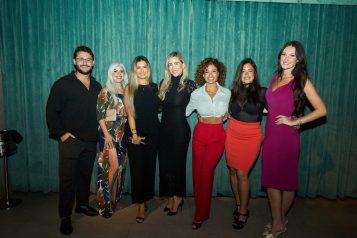Photo Credit: Shutterstock
In an era where artificial intelligence is generating everything from high fashion designs to investment strategies, the definition of “original work” is rapidly evolving—and so is the law. For the legal elite and the clients they represent, especially in creative industries and high-value brand portfolios, understanding this shift isn’t just academic—it’s urgent.
AI-generated content has entered the mainstream. In luxury fashion, brands like Valentino and Balenciaga have begun experimenting with AI-assisted design. In entertainment, music labels and streaming services are navigating the murky waters of AI-composed tracks. At the heart of these advancements lies a fundamental legal question: Who owns AI-generated work?
Current U.S. copyright law insists that protectable works must be authored by a human. In 2023, the U.S. Copyright Office reaffirmed this stance, denying copyright protection for works solely created by AI. Yet, the line between human input and machine output grows thinner each day. What if an AI generates a design, but a human curates the prompts, modifies the result, or uses it as the foundation for a larger creative process? Is that enough to establish authorship?
This legal gray area poses a distinct challenge to luxury clients whose brand equity relies on proprietary designs, curated aesthetics, and creative exclusivity. Trademark law offers some refuge—protecting logos, slogans, and product packaging—but even there, AI’s influence raises questions about distinctiveness and consumer confusion.
For high-net-worth individuals and businesses operating at the intersection of innovation and artistry, strategic legal guidance is no longer just about protection; it’s about future-proofing. Haute lawyers must now advise clients on how to document their creative processes, incorporate AI responsibly, and register hybrid works in ways that can withstand scrutiny.
Moreover, as AI-generated content becomes more commercially viable, expect an uptick in litigation. Disputes over ownership, copyright infringement, and the unauthorized use of training data (often scraped from human-made content) are already surfacing. Navigating this landscape demands lawyers who are not just legally astute but also technologically fluent.
The opportunity here is immense. Law firms that embrace AI tools can offer faster research, smarter contract drafting, and even predictive litigation analytics—transforming how elite legal service is delivered. But embracing this future also means mastering its risks.
In the luxury legal market, the future of creativity is no longer solely human. But with the right legal framework, we can ensure that innovation doesn’t come at the expense of originality—or ownership.



















